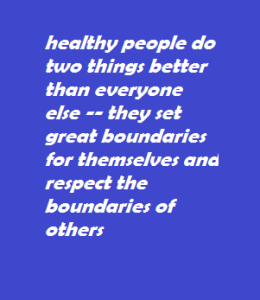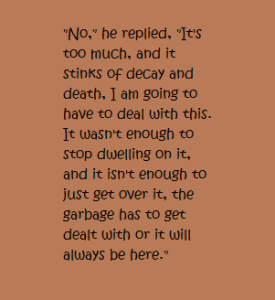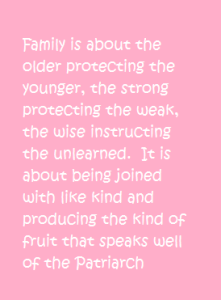The Character of Yeshua (Jesus) Pt 1: Understanding Boundaries
Learn from people — the healthiest people emotionally aren’t always the folks who had it easy growing up (it might just seem that way because they haven’t been tested). The healthiest people (or the people who will one day be the healthiest), do two things better than everyone else — they set clear boundaries for themselves and respect the boundaries of others. And they do it without resentment, complaints, and judgment.
.
This is something I wish I would see more of in online preaching.
.
People who have been on my facebook wall long enough pretty much know my boundaries. No calendar or name arguments, and I am not willing to argue about the divine nature of Messiah. I am also not willing to have anyone insult or belittle anyone on my wall. And I very rarely allow anyone to post a video or a teaching here unless it is from a very select group of teachers that I have vetted and feel comfortable about. I also really want things to stay on topic. Now, to someone who wants to do what they want where they want. that is going to seem controlling. And it would rightfully be considered controlling IF I held them to the same standards on their walls as well. But I respect the rules everyone else has on their walls, and I abide by them.
.
Now, people may CHOOSE not to be on my wall, and in fact many choose not to, which is fine. And there are walls of people I really like but I CHOOSE not to go there because I am not willing to interact with people under the guidelines they have set (especially the “anything goes” sort).
.
Now that right there is a facebook example of what the boundaries in our lives look like. And we all choose whether we are willing to be in relationship with others based on whether we are interested in respecting their boundaries and if they are willing to respect ours. No respect for boundaries means there is no real relationship, because when two people love each other (not necessarily talking familial type love, but friendship love as well), they want to stay within the reasonable boundaries set by the other person.
.
Reasonable boundaries are about what we consider to be right and wrong. If my husband loves me and respects my boundaries, he will not ask me to do something sexually that I find revolting. If I love and respect my husband, I am not going to cook the types of foods that he hates. If I like that food, I can wait until he has gone hunting or make it for lunch while he is at work, but I won’t put it down on the table in front of him.
.
So how does this relate to facebook preaching and preaching in general? You know — Yeshua (Jesus) our Master, He would stand up and preach in the synagogues when asked to. He would go to a town and preach in the open, and those who wanted to hear would listen and those who didn’t could walk away without Him following them home. He would preach in the wilderness and people could come to Him. When He was in His Father’s house, the rules would change and He respected His Father’s boundaries and overturned the money changer tables.
.
Yeshua showed us something important here — you have a right to listen, or not to listen to someone’s preaching or teachings. Like Paul, who probably heard Yeshua preach at some point or another, you have the right to not be ready to understand something yet. No one has the right to force you to listen to a teaching, or to try and push an understanding or revelation on you that you are not able to deal with at this time. The things I say, I don’t force them on anyone. I don’t post them on people’s walls unless they ask. I don’t send out friend requests so that more people can hear what I preach. My Master didn’t force Himself on anyone and so how would I dare to do it?
.
By all means, preach, and whoever comes will come and whoever runs away, let them run. Don’t slander them, don’t judge them and don’t try to manipulate them into coming back. That would be as pointless as judging and giving fertility advice to Sarah, Rebekkah, Rachel, Hannah and Elizabeth — when the time is right, the ground will be fertile, and who would we be to judge them in the meantime?



